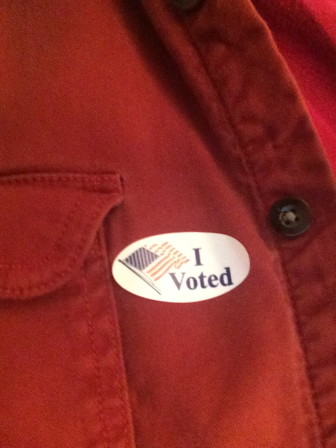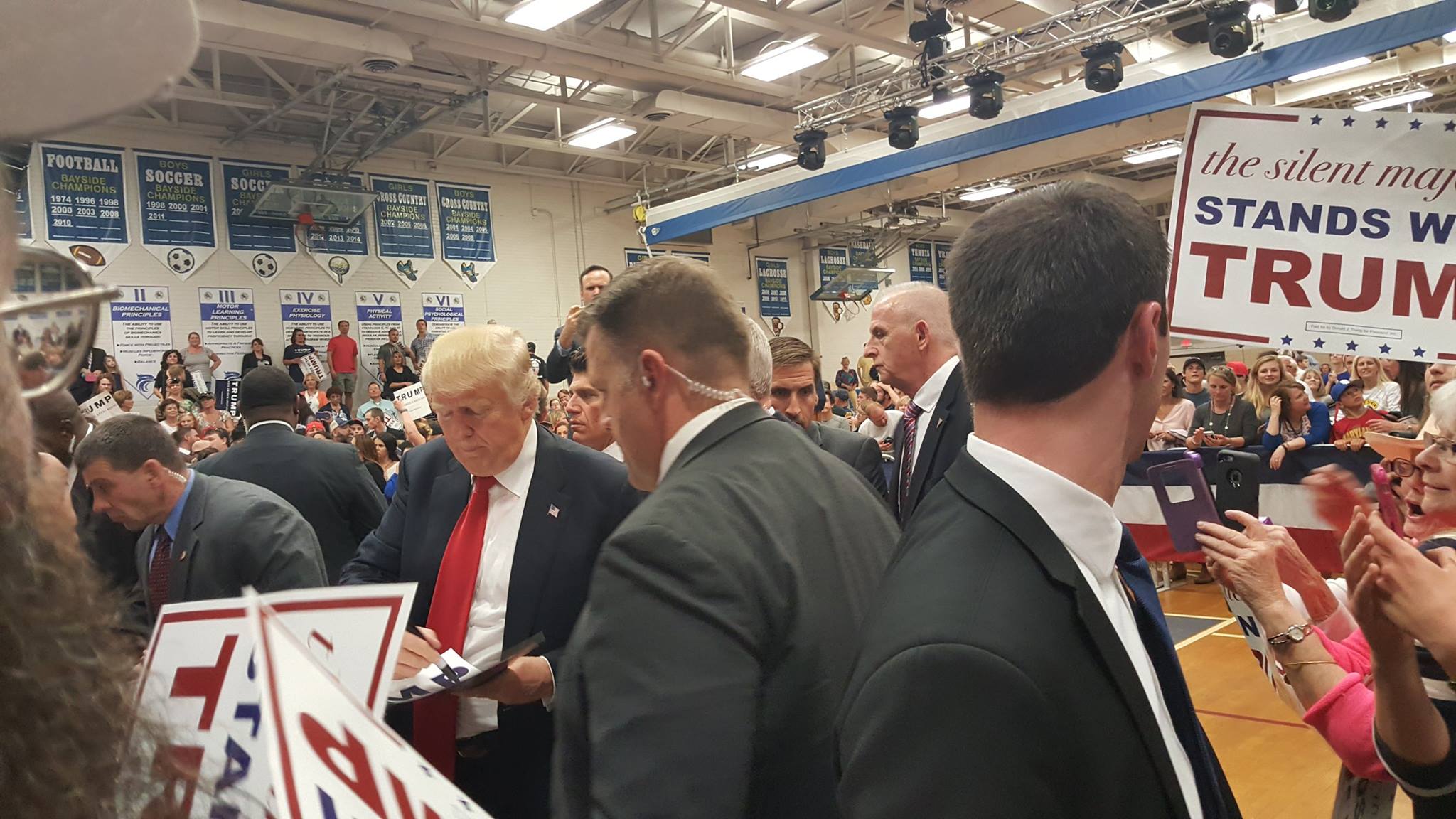By Barry Rascovar
For MarylandReporter.com

On primary election day, Maryland Democrats sent a strong message that for them experience and proven ability in public office are what count most. Frustrated Maryland Republicans, though, opted to follow a charismatic Pied Piper with wild ideas and zero elective experience.
That’s the biggest take-away from the April 26 balloting in the Free State. Except for Donald Trump’s easy triumph in the GOP presidential primary, Maryland voters came down heavily on the side of polished politicians whom they feel they can trust to deal with society’s intensely complex problems.
The “mad as hell” euphoria sweeping parts of the country against establishment figures didn’t flood into Maryland. Pragmatic insiders got the nod over impractical outsiders.
Top of the ticket
–In the Democratic presidential primary, Hillary Clinton walloped Sen. Bernie Sanders of Vermont. No “feel the Bern” groundswell of support for the far-left socialist-democrat in Maryland. He lost by a whopping 30 percentage points – one of his worst drubbings outside the Deep South.
That bodes well for Clinton in Maryland this November. She will benefit from solid Democratic support in a heavily Democratic state as well as the ABT (Anyone But Trump) factor: Two out of three Americans tell pollsters they view “The Donald” unfavorably.
–In the Republican president primary, Trump trumped two weak contenders, Sen. Ted Cruz of Texas and Gov. John Kasich of Ohio. It was easy pickings in Maryland for the outspoken billionaire real estate developer. He’s popular in rural areas (where he held his only Maryland campaign events) but he is detested in the state’s population centers. Maryland won’t be on his November list of winnable states unless his advisers live in the same world of unreality as the candidate.
United States Senate
–In the Democratic race for U.S. Senate, voters overwhelmingly favored Rep. Chris Van Hollen, who blew away Rep. Donna Edwards by a far wider than expected margin. Edwards won African-American jurisdictions but not by stupendous totals. She got clobbered everywhere else, especially in the Baltimore suburbs and in the state’s largest jurisdiction, Montgomery County.
Van Hollen’s easy romp on May 26 will make it nearly impossible for the GOP nominee, state Sen. Kathy Szeliga of Baltimore County, to compete in a November election where Democratic turnout could set a record. The ABT effect could severely undercut her chances, too.
Congressional primaries
In two suburban Washington congressional primaries, Democratic voters again opted for well-qualified and proven establishment officials.
–In Montgomery County, state Sen. Jamie Raskin defeated two Democratic outsiders, a wine-business multi-millionaire, David Trone (who tried to buy the election by spending a record $13 million), and a former local news personality, Kathleen Matthews.
Raskin isn’t flashy or charismatic. But he’s a solid constitutional law professor and an ultra-liberal who learned in Annapolis how to work effectively within the legislative system. His legal smarts could prove a decided plus in the House of Representatives.
He and his wife, Deputy Treasury Secretary Sarah Bloom Raskin, also could become one of Washington’s most prominent power couples after November, since Raskin is virtually assured of victory in the general election.
–In heavily Democratic Prince George’s County, former Lt. Gov. Anthony Brown won a close congressional race against former two-time State’s Attorney Glenn Ivey. The two insiders far outdistanced the field, which included a vocal Latino-rights candidate.
Voters in Prince George’s clearly preferred the tried and true, remembering Brown’s quality service in the county as a two-term delegate rather than his weak performance as lieutenant governor and his abysmal run for governor in 2014.
Mayoral race in Baltimore
–In Baltimore City, a stampede of candidates filed for the Democratic nomination for mayor but only two were taken seriously by voters. The non-politician outsiders, exemplified by lawyer Elizabeth Embry and multi-millionaire financial investor David Warnock, failed miserably to gain traction.
Warnock ran an uplifting campaign but he never persuaded voters he has what it takes to turn around a troubled, aging urban city. His advertising symbolism – driving through Baltimore in an old pickup truck – befuddled rather than enlightened viewers.
Embry, meanwhile, kept harping on criminal justice reforms – a misleading platform since Baltimore’s mayor plays a minor role in this area. That’s the job of the state’s attorney and the state legislature. Her smarmy last-minute advertising blitz portraying the two leading candidates as virtual criminals was a black mark in an otherwise constructive campaign.
Seven out of ten city voters supported the two most experienced insider candidates, former Mayor Sheila Dixon and state Sen. Catherine Pugh. That’s a ringing endorsement of competence in office over protesting voices from outside the government arena.
Pugh very narrowly defeated Dixon by winning over the city’s white voters and business community. Dixon ran strongest among African Americans who remembered her decades of constituent service and who deeply believe everyone deserves a second chance.
The city should benefit from Pugh’s victory, which all but officially makes her the next mayor in December, given the Democrats’ lopsided voter advantage in Baltimore. She is on friendly terms with Republican Gov. Larry Hogan and key state lawmakers and will have an open door in seeking help from Baltimore’s business and civic leaders.
On April 26, Maryland proved in most cases an island of sanity and stability in an election season marked by bizarre and hard to explain developments. The state’s voters, by and large, seem to have their feet – and their senses – planted firmly on the ground.
Barry Rascovar’s blog is www.politicalmaryland.com. He can be reached at [email protected]






I don’t know about Clinton’s “experience” and “proven ability” because she’s gone to such great lengths to conceal the record by circumventing FOIA. This isn’t my opinion. Its the opinions embodied in orders by two Federal judges granting discovery in the Judicial Watch cases.